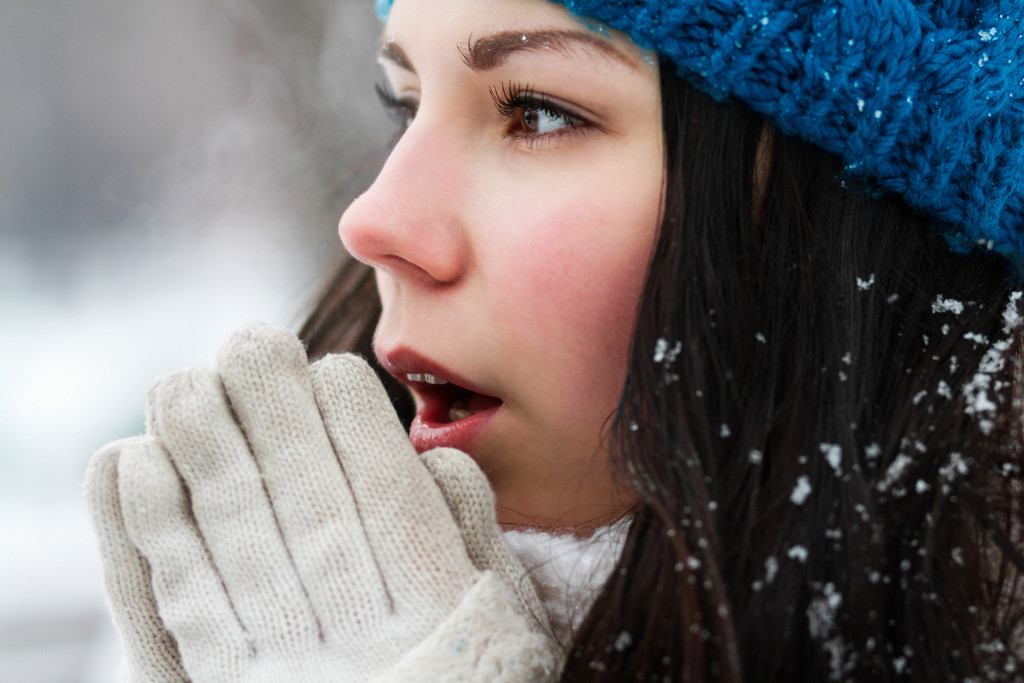• The cold winter weather increases the risk of common illnesses, such as the common cold, flu, RSV, and pneumonia.
• To avoid getting sick, wash your hands often and get the flu shot yearly.
• Invest in a good heater to keep your home warm and help prevent illness.
• Dress in layers when going outside to stay warm and prevent colds.
• Incorporate vitamin C-rich foods into your diet, such as citrus fruits and bell peppers, to boost your immune system.
When the temperature outside drops, people tend to hunker down indoors. While it’s great to curl up on the couch with a cozy blanket and hot cocoa, the inside makes everyone more susceptible to disease. The cold winter weather means more than just a chill — it also brings with it an increase in sickness and germs.
Most Common Illnesses During the Winter Months
Certain illnesses are more common in winter than in other seasons. Here are some of those illnesses.
The Common Cold
A virus causes the common cold; according to the CDC, more than 200 types of cold viruses are floating around. The most common symptoms are a runny nose, congestion, sneezing, and a sore throat. You can catch a cold by coming into contact with someone sick or by touching surfaces contaminated with the virus. To avoid getting sick, wash your hands frequently and avoid touching your face. If you get a cold, over-the-counter medication can help relieve your symptoms.

The Flu
A virus also causes the flu but is much more severe than the common cold. Symptoms include fever, chills, headache, fatigue, dry cough, sore throat, and runny nose. The best way to avoid getting the flu is by getting a flu shot every year. However, even if you get vaccinated, you can still get the flu—although it will likely be less severe than if you had not been vaccinated. If you do come down with the flu, make sure to drink plenty of fluids and get rest. You may also need antiviral medication prescribed by a doctor to recover quickly.
RSV
RSV is the respiratory syncytial virus primarily affecting infants and young children. It is very contagious and causes cold-like symptoms such as coughing, wheezing, and fever in some cases. There is no specific treatment for RSV other than relieving symptoms until the virus runs its course—which usually takes about a week. However, you can help prevent RSV by washing your hands frequently and avoiding close contact with people who have it—especially young children.
Pneumonia
Pneumonia is an infection of the lungs that bacteria or viruses can cause—and it can be fatal if not treated properly. Symptoms include coughing (sometimes with mucus or blood), chest pain when coughing or deep breathing, rapid or difficulty breathing, sweating and shaking chills, fever greater than 102 degrees, and other symptoms.
Pneumonia can be a severe illness, so getting medical attention is vital if you experience any of these symptoms. Antibiotics, fluids, and oxygen can help treat the infection. It’s also a good idea to get a flu shot every year to help prevent getting pneumonia in the first place.
Staying Healthy in Winter
The best cure is not to get sick at all. Here’s how you can stay healthy during the winter months.

Get a Heater
Investing in a good heater is one of the best investments you can make to stay healthy in the winter. Being too cold can weaken your immune system and make you more susceptible to getting sick. A good heater will help keep your home warm and cozy so you can stay comfortable throughout the season.
Consider investing in a fireplace if you want an affordable and effective option. A gas fireplace can be a rustic and nostalgic addition to your home. It’s also great to cozy up to it alongside your family members.
Dress in Layers
When you go outside, make sure to dress in layers. Multiple thin layers are much better at trapping heat than a single thick layer. This will help you stay warm outdoors and ensure the cold weather doesn’t get the best of you.
Eat Well
Eating nutritious meals is essential all year round, but it’s especially critical in the winter. Ensure you get plenty of fruits and vegetables in your diet to help keep your immune system strong. You should also avoid processed or sugary foods that can weaken your immunity.
Vitamin C Intake
Increasing your vitamin C intake during the winter can help boost your immune system. Vitamin C is an antioxidant that helps reduce inflammation and fight infection. You can increase your intake of this vitamin by eating citrus fruits, bell peppers, broccoli, and other vegetables.
These are just a few tips to help you stay healthy during winter. While it can be tempting to curl up and hibernate, keeping your immune system strong is critical for staying healthy throughout the season. This way, you can enjoy all the season has to offer—without worrying about getting sick.




